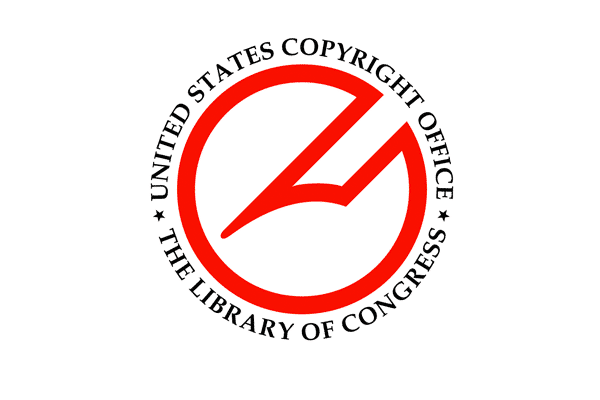
From ALL YOU NEED TO KNOW ABOUT THE MUSIC BUSINESS by Donald S. Passman. Reprinted by permission of Free Press, a Division of Simon & Schuster, Inc. Buy the book here.
Videos by American Songwriter
Master Licenses
Record Company Masters
Most of the master licenses are, not surprisingly, from record companies. The rest are individual owners of recordings, which we’ll deal with a little later. With record company masters, you’ll only be involved in the deals as a secondary player because the contracting parties are your record company and the film company, who make a deal with each other. The money is paid to your record company, who promptly pockets half and treats the balance as artist royalties under your deal.
If your record contract says they need your consent to license masters into films (see page 166), they’ll call up and ask you to okay the deal. If the record company doesn’t need your consent, they may not even call you, although most will as a courtesy. (By the way, even if you don’t have the right to consent in your record deal, if you wrote the song and control the publishing, you can block the deal—remember, the right to use the master is only the right to use the physical recording itself. The record company can’t give a film company the right to use the musical composition [they don’t have these rights], so the film company has to make a deal with both the record company and the publisher to get a full set of rights. So, if you’re the publisher, you can control the deal through the side door even if you can’t do it through the front door. We’ll talk about publishing deals in a minute.) Because you may be asked to consent to these deals, and because you share in the income, you should know how they work. So let’s take a look.
A record company/film company master license has two main elements:
1. How much is the fee to synchronize the master in the film?
2. If the master is also going on a soundtrack album, what’s the royalty?
Master License Fees
The fee to use the master in the film varies directly with the importance of the song in its own right (was it a number-one single, or an obscure album cut?), the stature of the artist, and how it’s used in the film (is it on a radio in the background for ten seconds while people are talking, so that you need a truffle-sniffing pig to even know it’s there, or is it played in its entirety, maybe even integrated with the onscreen action, so that it takes on dramatic content and moves the story forward?). Obviously, there are all shades of variations in between, and sometimes it’s just a question of how much the producer has fallen in love with a particular cut. The range of fees is essentially the same as what’s paid for use of the song in the master, which we discussed on page 303. You should always ask the record company to pay through your half of the fee if you’re unrecouped, on the age-old theory of “Hey, no harm in asking.” Most of the time you won’t get it, so don’t let that affect your self-esteem.
Royalties
If the deal also grants record rights, the range of royalties paid to the record company is 11% to 14% pro-rata (see page 163 for what pro-rata means). You’ll get half of this, unless you can bludgeon more out of them. Of course, if your record company is releasing the soundtrack album or a single, you should get 100% of your normal royalty. If your master is the key master in the album (meaning, for example, it’s the only song in an album of underscore, or it’s the only hit in an album of obscure toads), then the royalty should be higher, as we discussed for artists (in Chapter 28). In addition, your record company can usually get a favored nations treatment for the master (meaning no one gets a higher royalty), at least insofar as other existing masters are concerned. The film company usually wants the right to pay higher royalties for recordings that are created for the film. Since the film company didn’t pay the recording costs, the only things that can be recoupable are the union re‑use fees (see page 462), and this too is negotiable. The fee paid to use the recording in the film or television program should not be recoupable under any circumstances, although film companies sometimes pay a small advance for the record use.
Other Master License Deal Points
The other deal points are about consent: the AFM (American Federation of Musicians) and you.
AFM Consent. There is an obscure rule in the AFM labor agreement that requires not only the payment of re‑use fees, but also the consent of the AFM to put existing masters in a motion picture or television program. The theory is that the union won’t put musicians out of work (i.e., by not requiring a new recording session) unless it’s such a unique master that a new recording won’t do justice to the film. An example would be a Buddy Holly master, which can’t be duplicated since Buddy isn’t available. In actual practice, however, I’ve never seen the union object to any licensing—in fact, this rule is almost always ignored and no one even asks. If you do ask, their consent is a rubber stamp.
You. Since the licensing deal is between your record company and the film company, you’re not directly involved. But once the deal gets under way, the record company will call up your manager and ask if you’re okay with the use of your master in a particular film. How do you evaluate this? On the financial side, you should review the deal and decide if you think it’s fair. The above criteria should give you a pretty good feeling for it. If the deal sounds okay, then proceed to the next step, which is just as important as checking the financial terms, but often overlooked: You should find out precisely what’s going on in the film when your song is being played. I have avoided a number of disasters with this simple question. For example, a film company once wanted to use a recording of one of my clients during a scene where a number of kids were shooting drugs. Or perhaps it’s a graphic sexual sequence (which, depending on your image, could be a plus). Remember, it’s your music and your career, so be careful about the creative aspects.
Non–Record Company Masters
As we discussed in the section on record deals, artists don’t usually end up owning their own masters, and even when they do, they often license the rights to a record company for a number of years. On the other hand, there are artists whose careers are, shall we say, “taking a holiday”—they might have been huge in the eighties or nineties, but they don’t mean as much today. Often these artists are “between deals” and have recorded stuff that they own. The same holds true for other artists whose deals have expired, and they’ve decided they can make more money by recording and distributing their own records. When these artist-owned masters are licensed for movies, the deals are pretty much the same as those outlined above, except of course there’s no record company in the middle. Another type of license is made by composers who have built up a library of instrumental song masters that they license into small films (who then hire someone to sing over the track). This is similar to the underscore library music we discussed on page 481, but they are more than instrumental cues—they’re actual song masters without the vocals. These library songs go for anywhere from $500 to $5,000.
Licensing Existing Musical
Compositions for Films
As we just discussed, the money paid to use a master goes to your record company. This means two things:
1. Right off the top, they get half of it.
2. If you’re unrecouped, you never see the other half.
Not such an appetizing proposition. But remember that the film also needs a synchronization license for the song in the master. So if you wrote the song and own the publishing, they now need to make a deal directly with you, and this side of the equation looks very different in one aspect:
You keep all the money. No minor distinction.
Copyright © 1991, 1994, 1997, 2000, 2003, 2006, 2009, 2012 by Donald S. Passman.













Leave a Reply
Only members can comment. Become a member. Already a member? Log in.